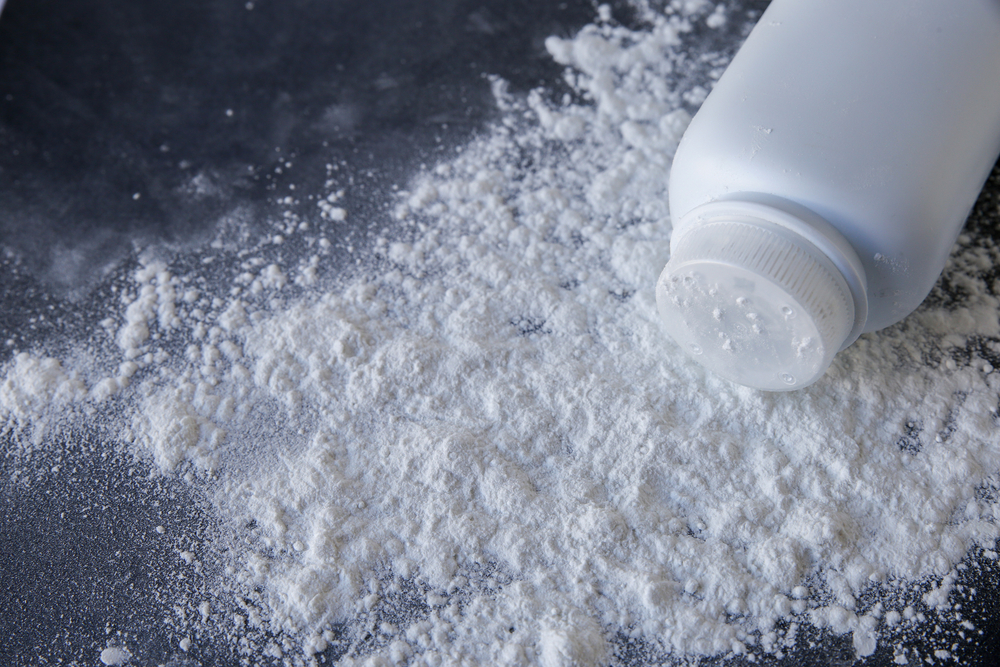A resident of Maine has initiated a wrongful death lawsuit against Johnson & Johnson, seeking $25 million in damages. The claim arises from the alleged role of the company’s talcum powder products in the death of his wife, Cynthia Cartwright, who was diagnosed with mesothelioma in 2017 and succumbed to the disease just four days later. This case is part of a broader trend of litigation against the pharmaceutical giant related to its talcum powder products, which have faced scrutiny for their potential health risks.
Background of the Talcum Powder Mesothelioma Lawsuit
On April 10, 2017, Cynthia Cartwright was informed that she had mesothelioma, a rare and aggressive form of cancer that primarily affects the lining of the lungs and abdomen. Tragically, she passed away just four days after receiving the diagnosis. The lawsuit filed by Andrew Curtin claims that Cynthia’s use of talcum powder, specifically products manufactured by Johnson & Johnson, led to her inhalation and ingestion of asbestos, a known carcinogen closely linked to mesothelioma.
Curtin’s lawsuit asserts that Johnson & Johnson’s talcum powder was “dangerous and defective,” and alleges that the company failed to adequately warn consumers about the potential risks associated with its products. According to the complaint, Cynthia used the talc powder on various parts of her body, which is how the alleged exposure to asbestos occurred. The claim states that the company “should have known” about the harmful nature of its products and failed to provide necessary warning labels.
The Broader Context of Talcum Powder Cancer Litigation
This lawsuit against Johnson & Johnson is not an isolated incident. The company has faced numerous legal challenges over the safety of its talcum powder products in recent years. In October 2024, a Connecticut man was awarded $15 million in damages after he claimed that decades of using the company’s talc products caused his mesothelioma. Furthermore, nearly 60,000 lawsuits alleging that J&J talcum powder products contributed to ovarian cancer and other gynecological cancers are pending in New Jersey federal court as part of a multidistrict litigation (MDL). In response to these claims, Johnson & Johnson proposed an $8.2 billion settlement to resolve these allegations.
Regulatory Oversight and Talcum Powder Safety Concerns
The legal challenges surrounding talcum powder products have raised questions about the regulatory oversight of cosmetic products containing talc. Johnson & Johnson has argued that the U.S. Food and Drug Administration (FDA) has primary jurisdiction over the safety of cosmetic talc-containing products. The company contends that the FDA has consistently ruled that cosmetic-grade talc is safe for use as intended and that manufacturers are not required to provide warnings regarding its use.
The Science Behind Talcum Powder’s Alleged Cancer Risks
Mesothelioma is a rare cancer primarily associated with asbestos exposure. It occurs in the mesothelium, a thin layer of tissue that covers the lungs and other internal organs. The American Lung Association describes it as “aggressive” and it is often diagnosed at an advanced stage, complicating treatment options. The link between asbestos and mesothelioma is well-established, with numerous studies indicating that inhalation of asbestos fibers can lead to the development of this cancer.
Talc is a mineral often found in cosmetic products, including baby powder. Concerns have been raised about talcum powder that may contain asbestos, particularly in products intended for use on sensitive areas of the body. The International Agency for Research on Cancer has classified talc that contains asbestos as “carcinogenic to humans.” However, the evidence regarding talc without asbestos is less clear, leading to ongoing debates about its safety.
Implications of the Talcum Powder Wrongful Death Lawsuit
The outcome of this talcum powder cancer lawsuit could have significant implications for both Andrew Curtin and Johnson & Johnson. If the court rules in Curtin’s favor, it may set a precedent for other similar claims and further damage the reputation of Johnson & Johnson. Conversely, a ruling in favor of the company could reinforce its position that its talcum powder products are safe when used as directed.
This lawsuit also highlights the growing public concern regarding corporate accountability in the face of health risks. As more individuals come forward with claims related to talcum powder, the pressure on Johnson & Johnson to address these issues increases. The outcome of this lawsuit may influence how consumers perceive the safety of talcum powder products and the responsibilities of manufacturers in providing transparent information about potential health risks.
Talcum Powder Lawsuit Information
Talcum Powder Lawsuit, Leading Justice
J&J Lifts Baby Powder Settlement Bid to More than $8.2 Billion, Bloomberg
J&J must pay $15 million to man who says its talc caused his cancer, jury finds, Reuters




